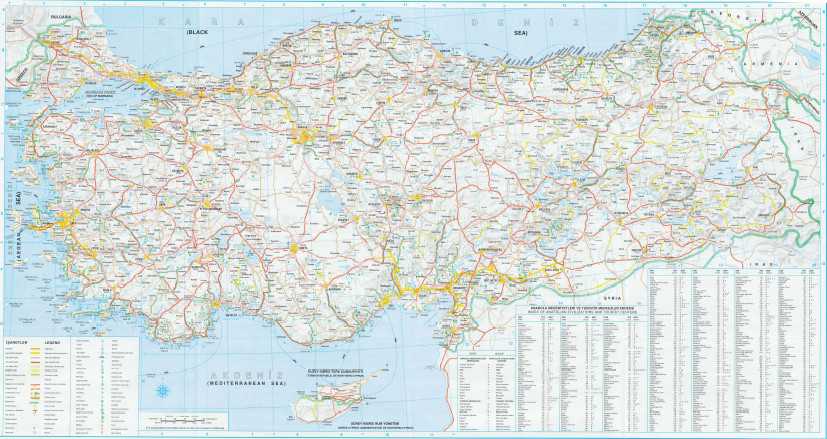It was an unfortunate week for Israel. The Jewish state lost trees in the Carmel Mountains, lost the US administration, lost momentum in the peace process and lost security incentives the US offered in exchange for a partial settlement freeze. Additionally, Brazil and Argentina recognized an independent Palestine with 1967 borders.
But what was a gain and a welcome development was a historic chance to reconcile with Turkey. Diplomats from both sides held talks in Geneva to agree on a document that will satisfy both sides’ requirements to bury the flotilla incident, a deadly Israeli attack on a boat carrying humanitarian aid to the Gazans on May 31 that left nine civilians dead. The possibility is not remote; the sides are simply not of the same mind on the phrasing. It is inconceivable to think that the tension, albeit currently easing, between Turkey and Israe l will continue much longer, as world leaders have strongly called on the Turkish and Israeli leadership to reconcile for stability and peace in the region.
Turkey says the current tensions are Israel’s choice and that Turkey is only condemning its brutal treatment of the Palestinians.
Israel still continues to allow Jewish settlements and tighten its grip over the land where the Palestinians aim to found a sovereign state if current peace talks yield any results. Israel has also intensified its military raids on Gaza and vowed to continue such incursions to “demilitarize” the strip.
In recent weeks the US had tried to convince Israel to extend a limited West Bank settlement freeze for 90 days, offering a series of security and diplomatic incentives. However, the negotiations over an extension broke down, and US officials announced earlier this week they had abandoned that approach.
This is now a historic chance for Turkey to step in to be a broker between Arabs and Israelis, as the oldest Muslim friend of Israel and a new, trusted partner of Muslims in the region.
Professor Murat Çemrek from the Institute of Strategic Thinking (SDE) said he has been talking to diplomats who participated in the Camp David, Madrid and Oslo peace processes, and he said these diplomats even acknowledged that these peace talks were not successful.
Çemrek said Turkey has a good reputation among Arabs, and diplomatic circles in the region trust Turkey as an honest broker. “Turkey could do it,” he said.
The US for years called on Israel to ease the Gaza blockade, calling the situation there “unsustainable.” But it was after Turkey’s pressure on Israel, including Israel’s flotilla bungle, that Israel agreed to ease the Gaza blockade.
Israel also welcomed Turkey’s role in proximity talks in 2008 and hailed Turkey’s mediation as “honest” even at a time when Turkish-Israeli relations were experiencing a huge diplomatic crisis. In February the Israeli Haaretz daily quoted Ehud Olmert, prime minister during the peace talks under Turkish mediation, as saying that Turkey acted responsibly and fairly in its role as a mediator in the indirect peace negotiations between Israel and Syria.
Stephen M. Walt wrote in his blog at Foreign Policy on Thursday that the current situation in the Middle East isn’t good for anyone — not the US, Israel or the Palestinians. Noting that it is increasingly likely that a genuine two-state solution isn’t going to be reached and that the US will be in a very awkward position once mainstream writers and politicians begin to recognize that fact, Walt said once it becomes clear that “two states for two people” is not going to happen, the US will have to choose between backing a one-state, bi-national democracy, embracing ethnic cleansing or supporting permanent apartheid. “Those are the only alternatives to a two-state solution, and no future president will relish having to choose between them. But once the two-state solution is off the table, that is precisely the choice a future president would face,” he said.
Barry Rubin, director of the Global Research in International Affairs (GLORIA) Center, known for his explicit pro-Israel position, declined to comment and said he can’t give an opinion on “nonsense,” referring to Walt’s remarks. “Israel isn’t going to create a bi-national state,” he underlined.
Israel and the Palestinians commenced the latest round of peace talks on Sept. 2. But less than a month later, negotiations broke down after Israel refused to extend a 10-month freeze on West Bank housing starts that ended at the end of September.
Birol Akgün, a professor at Selçuk University, said he thinks recent US withdrawal from pressuring Israel to halt Jewish settlements has to do with the WikiLeaks dump. Asked if it means Israel is orchestrating all of the WikiLeaks leaks, he said he means the neocons, the Israeli lobby and the deep pro-Israel establishment in the US are all groups controlling WikiLeaks, not necessarily the Israeli government. But he ruled out the possibility that Turkey could play a role in the Mideast peace process in the near future. “That is not realistic,” he stressed.
Akgün added that Israel is worried there are impending resolutions to be adopted in international platforms, rebuking Israel for its brutal treatment of Palestinians and the Mavi Marmara incident, and that is the reason why Israel wanted to take the first step to reconcile with Turkey to control the damage.


Leave a Reply